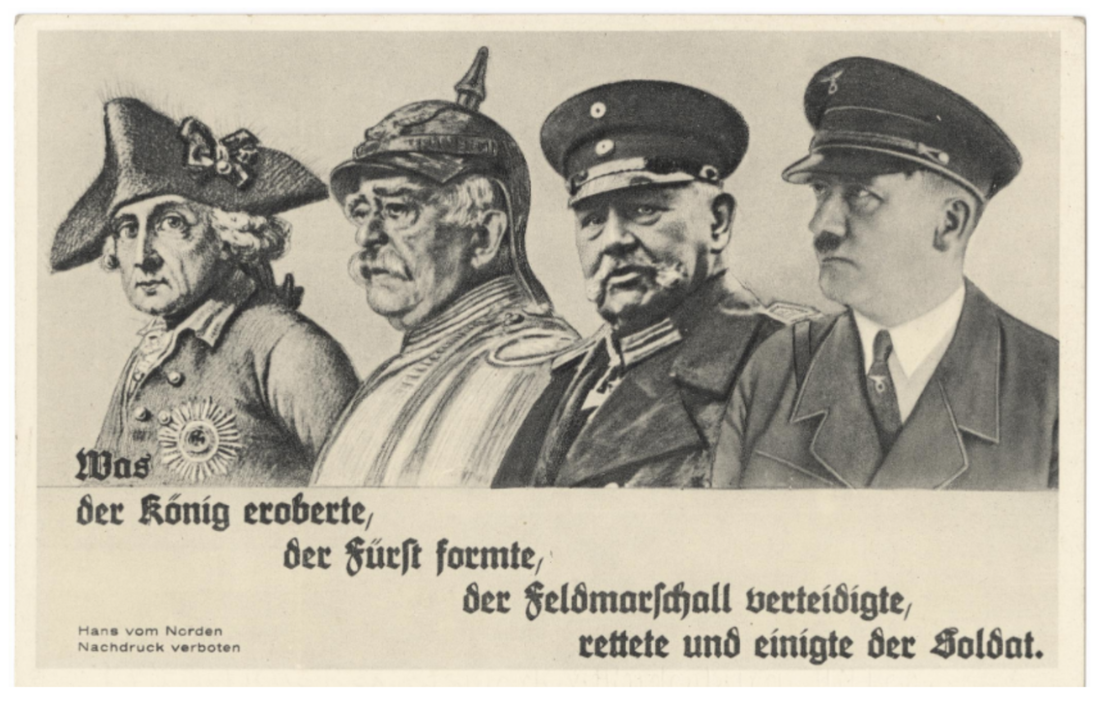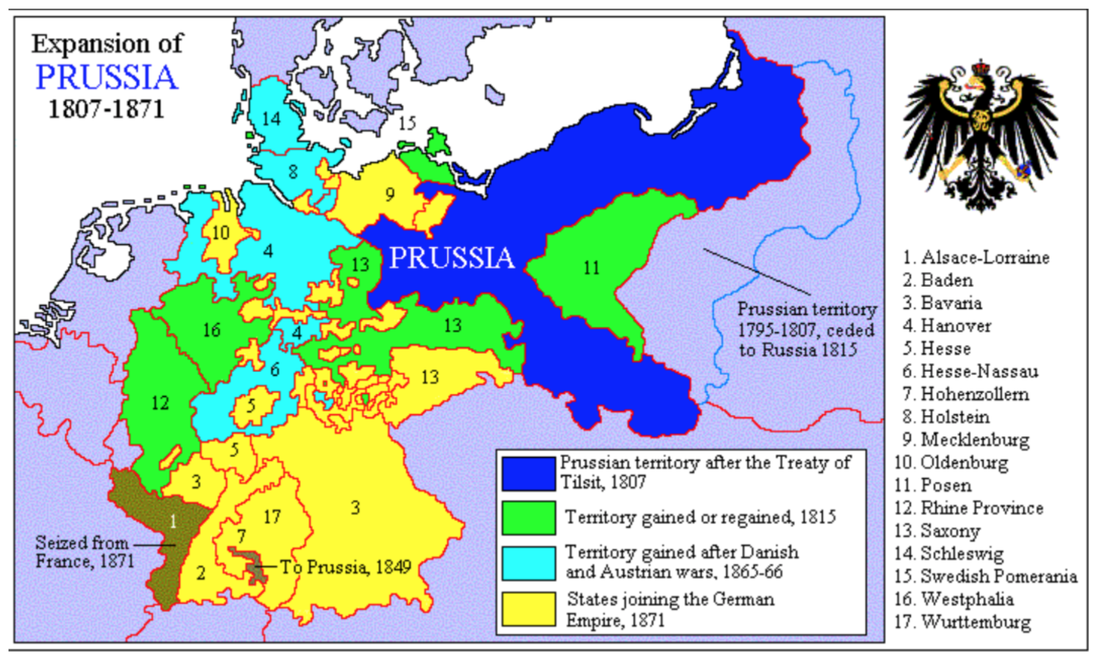|
The north German state of Prussia, which emerged as a powerful player in the 1700s was based almost entirely upon militarism. The Kingdom of Prussia spent at times between ⅔-⅚ of its GDP on the military. Mirabeau - the famous politician of the French Revolution - commented that Prussia was not a state with an army but an army with a state. In this regard he was quite correct. The Prussians had risen as a military force with the successful leadership of Frederick the Great, who ruled as king 1740-1772. The army was made up of peasant conscripts, who faced brutal treatment and harsh discipline from the officer class. This was combined with an officer corps which was comprised almost entirely from the Germany aristocracy. The immensely powerful Prussian landowners were like kings on their estates, their word was law and the peasants who worked for them were little better than the serfs of England at the time of William the Conqueror. These men were known as the junkers. Prussian power depended on these people, who along with the army and the monarchy were the backbone of the growing power of Prussia in the 18th century. The Prussian army became so successful that it was critical to the defeat of Napoleon Bonaparte at the battle of Waterloo; the Prussian troops arrived in the late afternoon to assist the forces of the Duke of Wellington. By 1870 the Prussian state, led by Otto von Bismark was the emerging power in Europe; against all odds, they defeated France in the Franco-Prussian War of 1870-1. The French quickly learnt a lesson in Prussian militarism. In contrast to countries like England and France, Prussia had an extremely under-developed middle class. Whereas, in England, it had been possible for some peasants to acquire land and wealth, for merchants to trade and become rich in towns and cities, for lawyers, doctors and teachers to form an educated middle-class; this had not happened in Prussia. The Junkers had maintained their vice-like grip of the peasantry and did not value cultural achievements in art, music and literature as the English and French did and there were very few developed urban areas in Prussia. The lack of a learned middle-class meant that following the formation of Germany after the Franco-Prussian War of 1871, the old habit of obedience from the lower-class to the powerful upper-class of the junkers was very well established. Despite a growing socialist and liberal movement in the 19th century Otto Von Bismark, the chancellor of Germany helped only to solidify the strengths of the Germany monarchy under Kaiser Wilhelm I. Bismarck also managed to protect the interests of the monarchy and army against the rising - yet still limited - power of the middle class. This meant that when the Weimar Republic sought to establish a true democracy for the first time in 1918, its roots were almost non-existent. Workers rights, parliamentary democracy and social equality had not been Prussian traditions. In fact Bismark and Kaiser Wilhelm II did all that they could to preserve and even extend the proud militarist past of the Kingdom of Prussia. Consequently, when challenges arose to the Weimar Republic, the socialist government had few allies in the army, the police or the judiciary it could count on to do its bidding. The lower-classes were not divorced from the old deferential relationships with the upper-class and the middle class had not supplanted the power of the junkers in the traditional institutions of Prussian power; most importantly the army. In order to assert the legitimacy of his rule, Hitler deliberately tried to align himself as the embodiment of both Frederick the Great and Otto von Bismark’s legacy. Somebody who would use force to protect German interests and someone who valued the army and military might. As a result, in the deep crisis caused by the Great Depression, when it seemed that Germany’s future lay in a choice between the Communists and the Nazis, the Nazis found willing allies in the old established power of big business, many in the army, judiciary, police and importantly the powerful junker upper-class who still held sway in many important positions across society. They saw the Nazis as a party who would protect their interests, positions they had maintained since the time of Frederick the Great. The Communists would destroy the junkers. History, and specifically the history of Prussia, helped to undermine the democratic aspirations of the Weimar Republic and arguably doomed it to failure from the start.  A Nazi propaganda postcard attempting to demonstrate how Hitler was a continuation of Prussia’s former great leaders. Portraits of Frederick the Great, Bismarck, Hindenburg, and Hitler appear in chronological order above the inscription "What the king conquered, the prince formed, and the field marshal defended, the soldier [Hitler] saved and united." Written by Will Burn
0 Comments
|
Categories
All
Archives
April 2024
|

 RSS Feed
RSS Feed